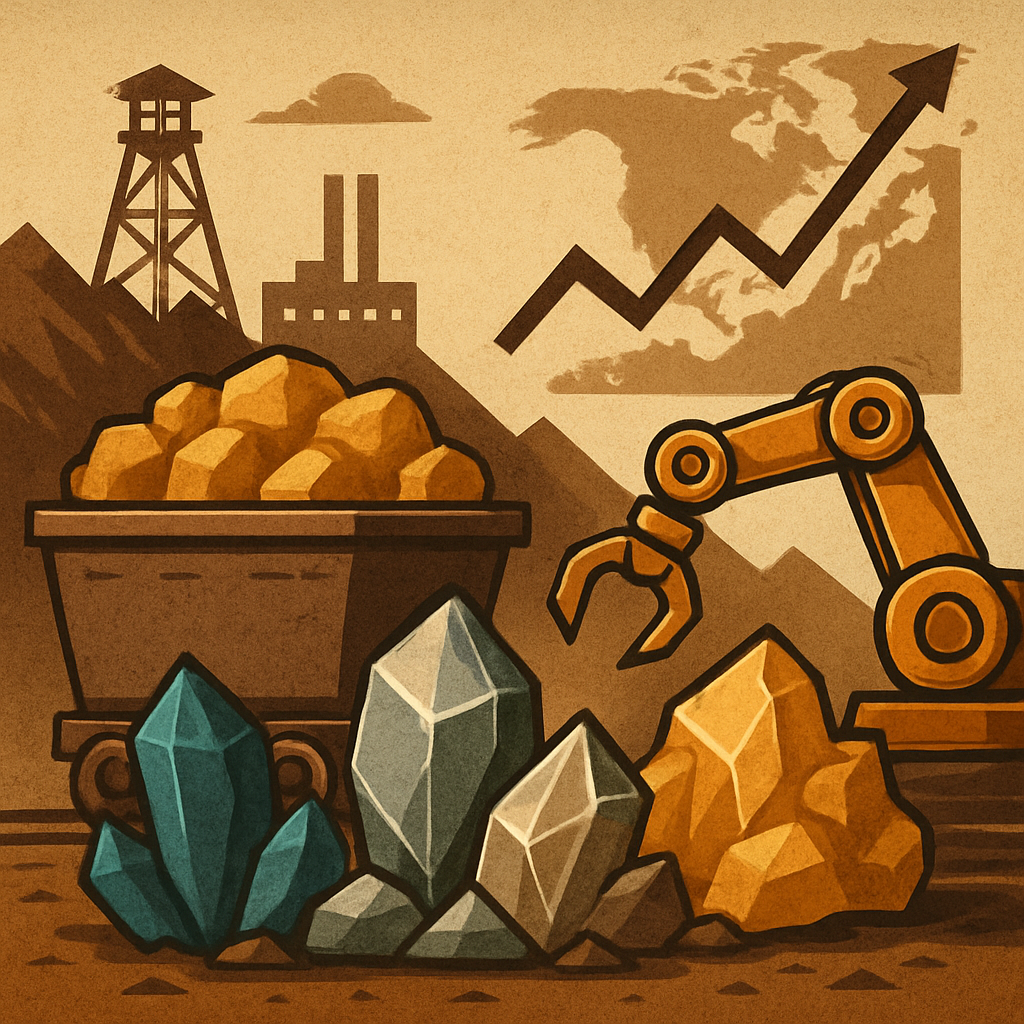Surging Demand, Geopolitical Risk, and AI Efficiency Drive a New Mining Gold Rush in Tech-Focused Startups
As the global push for electrification, clean energy, and AI infrastructure accelerates, critical minerals have emerged as the bedrock of the 21st-century economy. From lithium and cobalt to rare earths and copper, these essential materials underpin everything from electric vehicles and batteries to servers and satellites.
Now, amid tightening supply chains and rising geopolitical tension, investors are turning their attention to a new class of agile, tech-powered mineral startups. These companies are leveraging artificial intelligence, automation, and innovative extraction technologies to challenge legacy mining giants—and attract capital at a pace reminiscent of early-stage clean tech.
According to Axios, venture capital investment in mining and minerals tech has surged in 2025, fueled by both urgency and opportunity. With the U.S. and EU scrambling to secure domestic and friendly sources of supply—away from China’s dominant grip—startup miners are being positioned as vital players in the future of industrial strategy.
Why This Matters for Investors
The current mineral supply chain is strained, inefficient, and concentrated. China controls more than 70% of global rare earth refining capacity and holds key stakes in cobalt and lithium operations across Africa and Latin America (U.S. Geological Survey, 2025). This creates a chokepoint for the West, particularly as demand for batteries, electric vehicles, and data center infrastructure skyrockets.
Recent reports from the International Energy Agency (IEA) estimate that global demand for lithium, nickel, and rare earths will grow up to 7x by 2040 under the most ambitious net-zero targets. Simultaneously, AI data centers are multiplying, driving unexpected demand for high-conductivity metals like copper and specialty materials for semiconductors.
Faced with this backdrop, mineral startups are gaining attention not just for their geological assets, but for their novel approaches. These companies often combine sensor-driven exploration, advanced geospatial modeling, and sustainable extraction methods—making them attractive to both institutional investors and ESG-focused funds.
Tech-Driven Mineral Innovation: A Rising Investment Class
Among the notable startups gaining traction:
- KoBold Metals, backed by Bill Gates’ Breakthrough Energy Ventures and Andreessen Horowitz, uses AI to locate new sources of cobalt and nickel.
- Lilac Solutions, which developed a lithium extraction process that drastically reduces water usage, raised $150M in a recent Series C round.
- Hyperion Metals, an Australian-American venture, is exploring rare earth and titanium recovery using eco-friendly processes, with support from the U.S. Department of Energy.
The common denominator? They’re not traditional miners. They operate like Silicon Valley tech firms—with data scientists, agile workflows, and a clear focus on speed-to-market and sustainability.
According to McKinsey’s 2025 report on mining innovation, “technology-first exploration could reduce discovery costs by up to 35%, while shortening the typical 15-year mine development cycle by nearly half.”
Future Trends to Watch
- Onshoring Critical Minerals: As U.S. policy favors domestic supply through the Inflation Reduction Act and Defense Production Act allocations, watch for grants, tax credits, and DoD partnerships flowing to U.S.-based mineral startups.
- AI in Resource Mapping: Algorithms that predict ore bodies are improving rapidly, enabling faster discoveries at lower cost—giving tech-driven explorers a major edge.
- ESG-Aligned Capital Flows: Sustainable extraction methods will be key. Funds are increasingly applying ESG criteria to critical mineral portfolios, seeking traceable, low-emission supply chains.
- Vertical Integration in EV and AI Firms: Companies like Tesla and Nvidia may invest directly into upstream mineral startups to lock in access and pricing power.
Key Investment Insight
Minerals tech startups represent a high-risk, high-reward frontier in the clean energy and AI value chains. While traditional mining stocks offer more stability, early exposure to next-gen exploration firms can yield substantial upside if materials scarcity continues to define industrial strategy.
Investors should monitor venture-backed entrants focused on lithium, copper, cobalt, and rare earths—particularly those operating in politically stable jurisdictions and with a proven track record in sustainable mining or AI-powered discovery.
Stay informed with MoneyNews.Today—your trusted source for investor intelligence at the intersection of technology, markets, and emerging industries.





